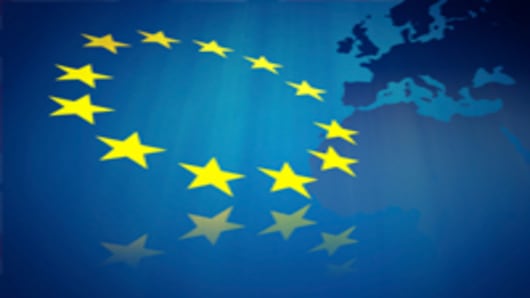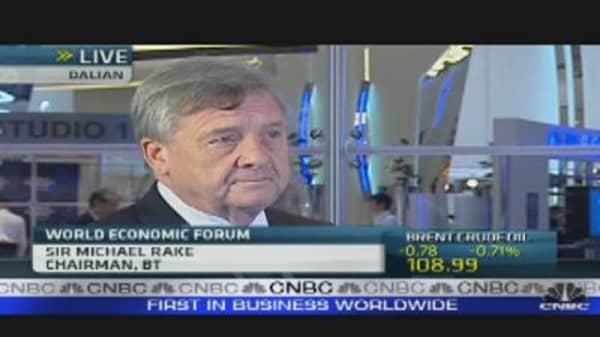Markets around the world have been waiting for decisions from euro zone leaders on greater fiscal integration and euro bonds since July.
The decision-making progress is likely to speed up between now and the September 23rd International Monetary Fund (IMF) meeting, one of the key financial policymakers of the 1980s and 90s told CNBC Wednesday at the summer meeting of the World Economic Forum, held in Dalian, China, which focuses on the emerging Asian powers.
Bill Rhodes, the former vice chairman of Citigroup and author of Banker to the World, thinks "a lot" is going to happen between now and the next round of IMF meetings in Washington.
"European leaders didn't move quickly enough after July 21," he added. "In every one of these crises, when you have sovereign trouble, banks get dragged in, and when you have bank trouble, sovereigns get dragged in."
European Commission President Jose Manuel Barroso said on Wednesday that the Commission will present options on how so-called euro bonds could be issued soon.
This could be the first step along the road to issuing a joint bond, a key part of closer integration within the single currency region.
Representatives of the BRICS countries are due to meet ahead of the main IMF meeting to discuss what assistance they can give to the euro zone.
On July 21st, an extraordinary summit of euro zone leaders agreed to boost the 440 billion euros ($600 billion) European Financial Stability Fund (EFSF), by allowing it to buy bonds in the secondary market and to lend pre-emptively to governments in distress.
Despite this move, jitters about economies such as Greece and Italy have continued to weigh down markets and the euro.
Rhodes, who headed a series of advisory committees representing international banks during debt-restructuring negotiations in Latin America in the 1980s and 1990s, believes that "a number" of European banks will have to raise more capital soon.
"We can’t continue on the way that we are," he said.
"Contagion moves very, very fast and we are up against the clock on timing. The major problem longer term is that we needed some sort of fiscal union in the euro zone to replace Maastricht," he said, referring to the 1992 Maastricht Treaty, which saw the creation of the European Union and began the process to create the single currency.
Rhodes said that Germany and France "set a bad example" by ignoring a guideline in the Maastricht Treaty to limit national deficits to 3 percent of gross domestic product (GDP).
"What they need is to get these austerity programmes approved in Spain and Italy, and they have to have some sort of constitutional amendment that limits the size of the deficit," he added.
"We are all staggered by the lack of concentrated connectivity between leaders of Western Europe to deal with their problems," Sir Martin Sorrell, chief executive of advertising giant WPP told CNBC.
He added that the majority of businessmen polled by WPP at Dalian had said that they would increase their investment in the BRICS – Brazil, Russia, India, China and South Africa.
"The biggest problem we have got in Europe and elsewhere is confidence," Sir Michael Rake, chairman of BT the British telecoms company, told CNBC.
"European banks are generally far better capitalized than they were. They have been far tougher about the risks they take, and their liquidity is stronger.
"The European central banks have been very strong in providing liquidity. Having said that, there are banks who have strong exposure to peripheral European economies and bonds that they have to deal with," he added.





